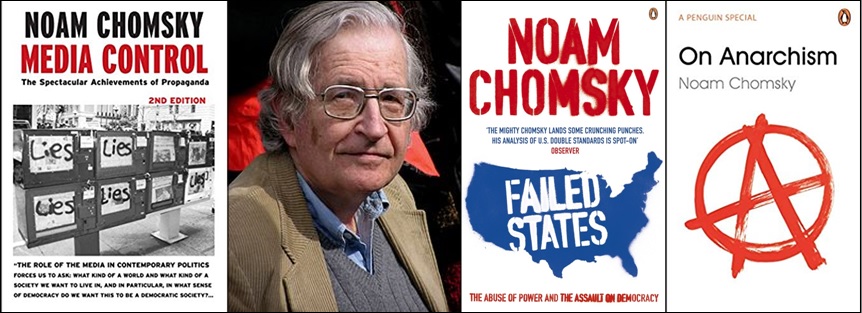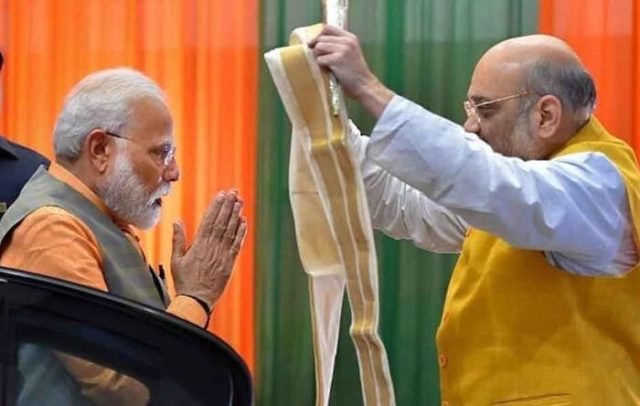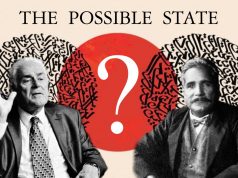So, after 5 years of betrayals and U-turns, fierce activism on roads and media, the Indian people have chosen the most undereducated and underachiever prime minister for a second term. Or so it seems. Or have the people of Bhopal chosen a far-right terror accused Sadhvi (nun) as their representative, instead of a respected senior politician and two-term chief minister Digvijay Singh, because he went too far in appeasing Muslims? Have the educated people of Delhi preferred a celebrity cricketer Gautam Gambhir over the Oxford graduate, education and anti-corruption activist Atishi Marlena?
Many concerned citizens have expressed disbelief and dismay that a nation known for its diversity has chosen the most divisive government. Or that the nation of Buddha and Gandhi has whole-heartedly approved religious chauvinism and embraced the fascism of Godse and Hitler.
My opinion, very differently, is that all the above are wrong. No, the Indian society is still the same as during Buddha and Gandhi; it is just too accommodating of Mihirakula and Godse. This trait is simultaneously the greatest strength of India as well as its weakness. A docile society will inevitably become so ambivalent, that any hero will be worshipped as long as he can cause waves and ripples, never mind his inclinations.
If we analyse the various state elections in the past 2 years and how those states have voted in this year’s General Elections, we see only contradiction. In Rajasthan, the Indian National Congress has won the 2018 state elections by a comfortable margin, winning 100(+12) out of 200 assembly seats. In Madhya Pradesh, Congress has come to power breaking the BJP majority after 15 years, with a narrow margin. In both these states, both the major parties have won equal vote shares. In Chattisgarh too, the INC has come to power with a sweeping majority, after 15 years of BJP rule. In Karnataka, the Bharatiya Janata Party has a formidable opposition against the Congress-Janata Dal government.
Most notably, in Narendra Modi’s home state of Gujarat, the BJP has suffered a setback after 12 years, losing 20 seats. The Congress has made a comeback with 78 assembly seats after a long obscure of 27 years. The Bahujan Samaj Party (BSP), seen as a preferred party of the weaker sections in the Hindi speaking north, has recovered 10 seats in the Lok Sabha after a crushing loss in 2014. And don’t forget the Delhi state elections in 2015, which gave a humiliating defeat to BJP.
In striking contrast however, all the above states, constituting one-fourth of India’s population, have unanimously voted for BJP candidates in this year’s Lok Sabha elections.
So why are the Indian voters so unpredictable? Do they follow any logic or is it the magic of the Hindu gods – a combination of 33 million divine wills?
The first reality we need to understand is the electoral magic of ‘first-past-the-post’ polling system. In any constituency, this voting system chooses, not the candidate with the majority of votes, but only the one with the largest number of votes. For example, four candidates, A, B, C and D are contesting elections for the position of a Corporator in a city. A gets 15% votes, B gets 36%, C gets 23% and D 26%. In this very typical situation, B is declared as the winner and the democratically elected corporator of the Ward. The flaw is clear in this method. A minority of 36% voters want B to be their representative, while a great majority of 64% does not. So, the Ward is now represented by a minority leader, not the majority’s choice.
In the same manner, there are many democratically elected leaders who are NOT the choice of the majority in those constituencies. Eventually, in 2014 Lok Sabha elections (and similarly in other elections too), only 206 out of 543 members of parliament were the choices of majorities. The remaining 337, i.e. a sweeping majority of 62% elected members of the lower house, were actually minority candidates of their respective constituencies; they were NOT the choice of over 50% voters. A democratically elected leader, therefore, is the herded choice of a group-thinking minority over the diverse and disunited choices of the vast majority. According to the acclaimed psychologist Irving Janis, Groupthink occurs when a group of well-intentioned people make irrational decisions, spurred by the urge to conform. This problematic consensus can arise simply because group members value harmony and coherence above rational thinking.
This first-past-the-post system (FPTP) of vote is followed in some British Commonwealth States like UK, USA, Canada, Singapore, Pakistan, Bangladesh and Trinidad (the country of V S Naipaul and Imran Hossein), besides Syria and Malaysia. All the countries of Western Europe (except UK) have put away this flawed voting system, besides democracies like Australia, Japan, South Korea, Argentina, Turkey, Mexico, South Africa, Lebanon, China (communist), Russia and Israel.
Question: Why don’t the Indian media raise awareness over this very important structural problem?
The answer is that mainstream journalism cannot be a check on power, because the very system encourages complicity. It doesn’t raise the most crucial questions but suppresses them. Noam Chomsky, probably the world’s best intellectual alive, wrote in his book Necessary Illusions (1989), “The media serve the interests of state and corporate power, which are closely interlinked, framing their reporting and analysis in a manner supportive of established privilege and limiting debate and discussion accordingly.” In Media Control: The Spectacular Achievements of Propaganda, Chomsky writes, “An alternative conception of democracy is that the public must be barred from managing their own affairs, and the means of information must be kept narrowly and rigidly controlled; … of democracy, that is the prevailing conception.” “The bewildered herd needs to function as spectators in democracy; they must be tamed and distracted by the specialised class. Occasionally, they are allowed to lend their weight to one or another member of this specialised class, and then sink back as spectators. That’s called an election. That’s in a properly functioning democracy.” – (Paraphrased) The ruling elites learnt during the First World War, Chomsky writes, “State propaganda, when supported by the educated classes and when no deviation is permitted from it, can have a big effect. It was a lesson learned by Hitler and many others, and it has been pursued to this day.”
Coming back to the Indian elections, the FPTP system has been electing minority governments at the Centre since a long time. As far as I have researched, Indian democracy has been electing such minority governments since Indira Gandhi. In the case of 2019 elections, only 37% Indian voters have voted for BJP, while a majority of 63% voted for other parties. Hence, it would be safe to conclude that more than a third of Indian voters belong to the above-mentioned group-thinking category.
The cause for this group-thinking behaviour is undoubtedly bad education and a conformist culture. As I had mentioned in an earlier article on Knowledge, Education and Wisdom, the purpose of education must be to sensitise virtues and cultivate critical thought and wisdom, and not of merely preparing human capital to supply labour for industry and the free market. If the agenda of education becomes the creation of knowledgeable workers for a ‘service system’, which is precisely the case in most countries, the citizenry will inevitable become socially passive and intellectually mediocre. Such societies become deeply insecure, develop weak morality of herd-instinct, and are easily fooled by demagogic populists who cultivate a cult of personality. This reality was rightly pointed out in an article last month by Christophe Jaffrelot, scholar of South Asian Studies and author of several books including Hindu Nationalism: A Reader. He wrote, “A man has projected himself as the saviour of a nation reduced to the majority community against external and internal threats, polarizing society and the public opinion to such an extent that those who are not with them are against them”. Obviously, the dominant classes, which benefit the most from State infrastructure (the 37%) have voted for a strongman who can conduct Surgical Strikes and destroy terror factories of Pakistan (controversy only adds more spice), patronise record-largest statues representing State, cultural and spiritual power, make ‘bold’ legislations like GST, 100% FDI and Triple Talaq Bill, boldly revise history textbooks to assert cultural supremacy, crack down upon Muslim immigrants from Bangladesh and give powerful speeches (matched only by Indira Gandhi).
All the above policies are more important to the group-thinking voter than water shortage, farmer’s suicides, good education, inequality, unemployment, public health and sanitation. Goodbye Swacch Bharat. Who wants a mama’s boy Rahul Gandhi or an asthmatic Kejriwal? Only the wretched leftists of JNU who cry for the poor and the peasant and an Asaduddin Owaisi who spews Urdu in the Parliament – both ‘Internal Threats’, as mentioned by the Param Pujya Guruji Golwalkar! All of this reminds of the sycophants of Indira Gandhi, Fidel Castro and Saddam Hussein.
A quintessential case is of Hadiya’s father, K M Ashokan, who has left the Communist Party of India (Marxist) to join the BJP. He has transformed from a staunch atheist to a hardcore Hindu, saying “BJP is the only party safeguarding the beliefs of Hindus”! Ashokan joined the saffron party and pledged his support for its ‘strong stand’ and agitation against the Supreme Court’s verdict on the Sabarimala case.
It is this herd instinct of mediocrity about which the Existentialist philosopher Friedrich Nietzsche wrote over a hundred years ago, in his book Beyond Good and Evil, “The extraordinary limitation of human development, the hesitation, protractedness, frequent retrogression, and turning thereof, is attributable to the fact that the herd instinct of obedience is transmitted best, and at the cost of, the art of command.” Nietzsche wrote further, “Morality in Europe today is herd animal morality. … The Democratic movement is the inheritance of the Christian movement. That its tempo, however, is much too slow and sleepy for the more impatient ones, for those who are sick and distracted by the herding-instinct, is indicated by the increasingly furious howling, and always less disguised … of the anarchist dogs …”
Such are the passive herds of mediocre societies that are fuelling fascism around the world as they did in twentieth century Europe. These traits eventually weaken the ethics of individuals and wither the social fabric. Such a weak and ambivalent society, together with its crony capitalism, mass production, consumerism, entertainment and social media besides the flaws of the FPTP voting system, will inevitably elect a dishonest and an authoritarian government. Ergo, it wouldn’t be absurd to suggest that the two largest and greatly flawed democracies in the world, with mainstream media that manufactures consent, actually resemble social and politico-economic dystopias. Atishi Marlena lost for the same reason Pragya Thakur won – both were riding the tide of their populist strongmen.
Finally, something about the liberal journalists who have become just as naïve as orthodox mullahs. Some voices are apprehensive that a prolonged rule of Hindutva in India might turn the anti-Hindu projection of Muslims into a “dark self-fulfilling prophecy”. Some have claimed that “Muslims feel threatened and scared”. Well, some herd-minded Muslims might sure verify these claims.
But the naïve liberals need to ask themselves, have the anti-Sikh pogroms and the subsequent sweeping victory of Rajiv Gandhi government, made the Sikhs anti-Indian? Yes, to some extent. But Manmohan Singh and Capt. Amarinder Singh have proved the opposite. Have the constant atrocities against Dalits and Adivasis turned them anti-national? To some extent, yes; but K R Narayanan, Ramnath Kovind and Soyam Bapu Rao have also proved the opposite. The thing that disproves these liberal thoughts is that at the extremities, there are people who value their own freedom above State slavery and there are people who do not. And in between these two extremes, there are more than 7 billion colours, shades and hues.
My advice to these liberal State worshippers is, please don’t pretend to be our saviours, you have never been and you can never be. Your cunning treachery is already out and you cannot fool us anymore. You believe that ‘Ramadan’ is a Wahhabi replacement of ‘Ramzan’ or a cultural insecurity, while you don’t know anything about Tajweed and you surely don’t pray Taraweeh. So just enjoy your plate of Haleem (or Daleem) and keep erasing the memories of Jamaluddin Afghani and Ghulam Mohiuddin Ahmed, while you appropriate Ambedkar.
Malcolm X had said, “They are fighting each other for power and prestige, and the one that is the football in the game is the Negro, 20 million black people. A political football, a political pawn, an economic football and economic pawn. A social football, a social pawn. The liberal elements of Whites are those who have perfected the art of selling themselves to the Negro as a friend of the Negro. Getting sympathy of the Negro, getting the allegiance of the Negro, and getting the mind of the Negro. Then the Negro sides with the White liberal, and the White liberals use the Negro against the white conservatives. So that anything that the Negro does is never for his own good, never for his own advancement, never for his own progress, he’s only a pawn in the hands of the White liberal.”
What goes for the White liberal also goes for the Indian liberal. There are indeed rare exceptions, but those are rare exceptions only. For now, the Indian liberal has lost his gamble and mantle and is hence bewildered. But this very loss is waking me up and many others out of slumber and bewilderment. Don’t worry, liberals, we are not your opponents. We are not opposed to any communities either; I really like the works of Swami Vivekananda, Rabindranath Tagore, Martin Luther King Jr. and Khushwant Singh. But we are not a group-thinking herd which you can tame and harvest. We are anti-fragile.






